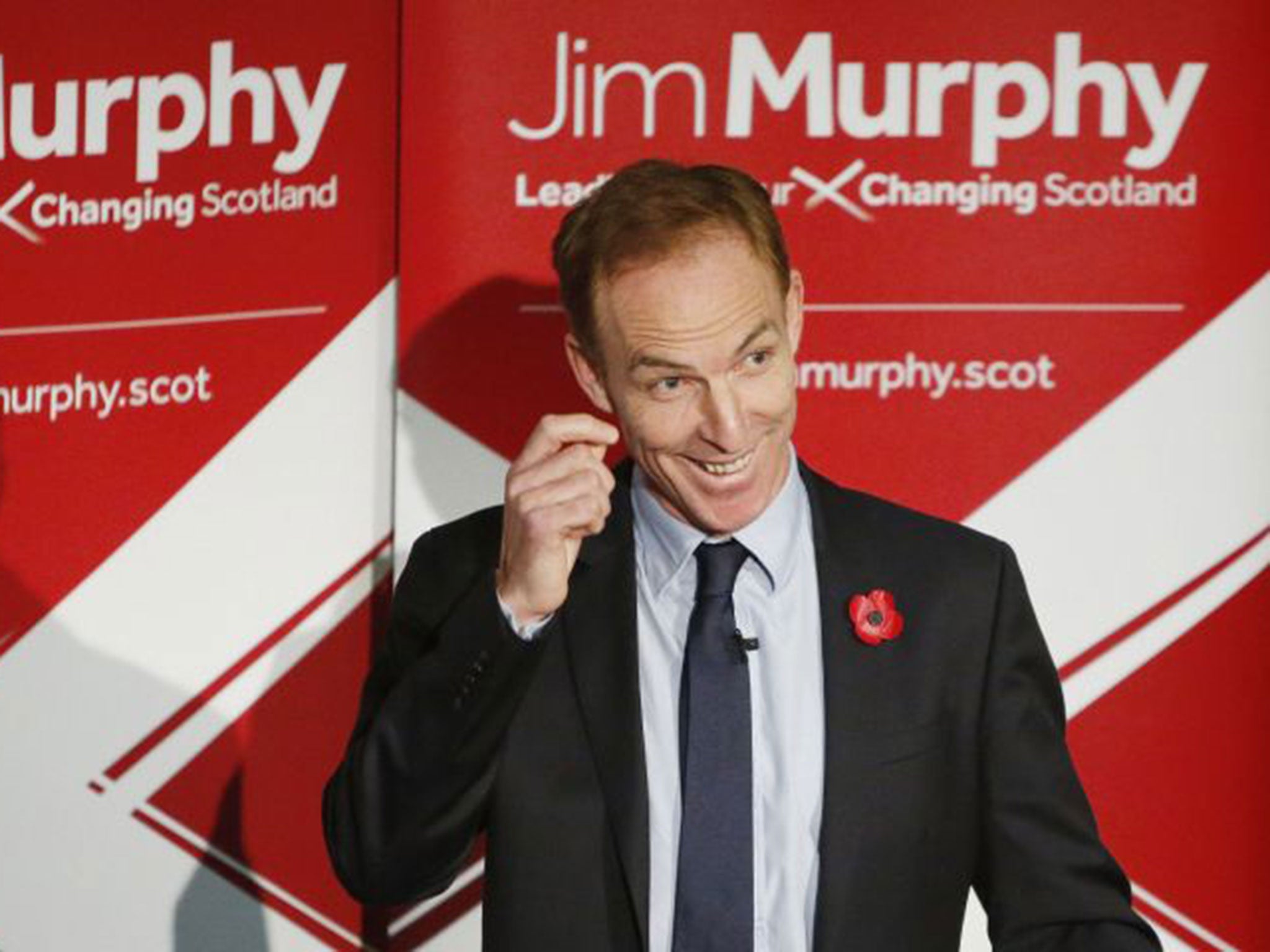Labour's saviour in Scotland may have to sit the election out
Party's newly elected boss may find himself having no seat north or south of the border

Your support helps us to tell the story
From reproductive rights to climate change to Big Tech, The Independent is on the ground when the story is developing. Whether it's investigating the financials of Elon Musk's pro-Trump PAC or producing our latest documentary, 'The A Word', which shines a light on the American women fighting for reproductive rights, we know how important it is to parse out the facts from the messaging.
At such a critical moment in US history, we need reporters on the ground. Your donation allows us to keep sending journalists to speak to both sides of the story.
The Independent is trusted by Americans across the entire political spectrum. And unlike many other quality news outlets, we choose not to lock Americans out of our reporting and analysis with paywalls. We believe quality journalism should be available to everyone, paid for by those who can afford it.
Your support makes all the difference.The Labour Party in Scotland could soon have a leader who does not hold any elected office in either Westminster or Holyrood.
If, as expected, Jim Murphy is elected the party's Scottish head next month, many believe he will step down from his East Renfrewshire constituency ahead of May's general election.
The Independent on Sunday has learnt, however, that senior Labour figures fear their new party head standing in a by-election to become an MSP is too risky, given Labour's current low poll ratings. Mr Murphy may wait until the 2016 Scottish election to gain elected office, resulting in the situation of a party leader holding no seat in Scotland's parliament.
Mr Murphy, a former Scottish Secretary and currently Labour's international development spokesman, formally launched his leadership campaign yesterday in Edinburgh. He admitted that Labour in Scotland lacked vision, and had lost the last two Holyrood elections to the SNP because it failed to listen to voters.
He praised the SNP for renaming the Scottish Executive the "Scottish Government" but criticised their "obsession" with independence. He said the SNP didn't come close to winning September's referendum.
He said Labour's fight for Scotland "starts here", adding he would "not rest until we win".
Aides would not formally comment on the likelihood of him standing down from his Westminster seat. A spokesman would only say: "He will definitely be a candidate for First Minister in 2016."
Under present party rules, the leader of Scottish Labour is duty-bound to seek election to the Holyrood parliament at the earliest opportunity. With the next Scottish parliamentary elections scheduled for May 2016, if Mr Murphy sought re-election to Westminster next year, it would mean his resignation would need to follow ahead of the 2016 election for the devolved parliament in Edinburgh.
A senior office holder in the Scottish Labour Party told The IoS: "MPs ask to be elected for a full parliamentary term, not less than a year. Jim already understands this. So if he wins [the leadership], and I believe he will win well, his next priority, as he's said, is 'leading the nation' – from inside Holyrood."
Although a fast-tracked Holyrood entry via a by-election held on the same day as the 2015 general election remains an option, the perilous state of Labour's popularity in Scotland would leave any newly elected Labour leader vulnerable to a humiliating defeat. Two opinion polls last week forecast that Labour's Scottish contribution to Westminster in May could be catastrophically low. One poll carried out by Ipsos Mori poll for Scottish Television estimated that Labour could lose all but four of its 41 MPs.
Prior to the publication of the two polls, Mr Murphy and party advisers had been looking at the Holyrood constituencies bordering his Westminster seat.
The MSP for Renfrewshire South, Hugh Henry, will be 63 next year. If he were persuaded to stand down before the general election, this would allow Mr Murphy to contest the consequent by-election.
But with a Labour majority in 2011 of only 2,587 over the SNP, the slim percentage lead of only 9.6 percent would leave Mr Murphy very exposed.
The situation in the neighbouring Eastwood constituency is better. But even a marginal swing to the SNP could deliver a sensational result that might end Mr Murphy's ambitions of becoming FM before they had even started.
A former party tactician in Edinburgh said: "Everything points to Jim waiting till 2016.
"He need not hold any office to lead the party in Scotland, and the breathing space of a year between 2015 and 2016 could be crucial to the required re-configuration of Labour in Scotland."
With Scotland's largest union, Unison, backing the left-leaning MSP Neil Findlay, who also has the support of the rail unions Aslef and TSSA, the leadership contest will be no coronation.
However, the electoral college system that is still used in Scotland, which gives unions, members and politicians each a third of the overall vote, is thought to give Mr Murphy an advantage over of his opponents, who include the long-serving MSP Sarah Boyack.
Join our commenting forum
Join thought-provoking conversations, follow other Independent readers and see their replies
Comments